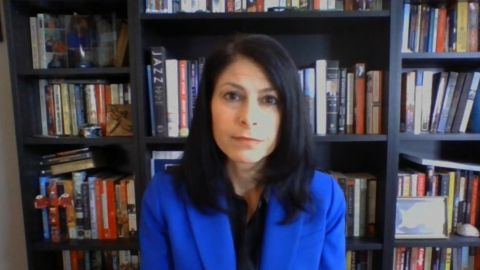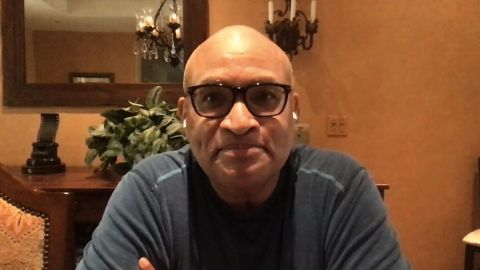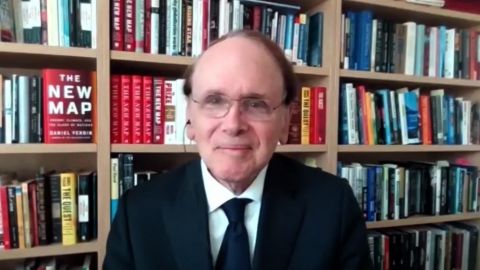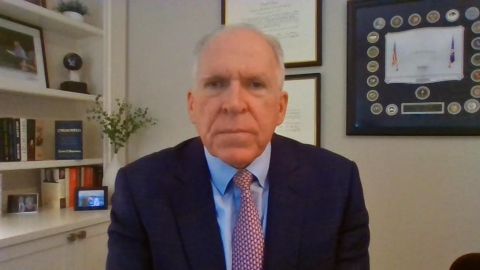Read Transcript EXPAND
LARRY WILMORE, COMEDIAN: Well, it’s interesting. I was having a conversation with Dan Shear, who leads Peacock, and I’ve been working with NBC Universal this past year developing shows. You know, Christiane, it was in the wake of all the George Floyd that were going on and just all the energy that was in the air. This summer is like no summer I’ve ever seen in a long time. And Dan approached me about possibly using the Peacock platform to maybe just try to have a conversation with America, really kind of started that simple, and we started talking about it and thought, you know, maybe this is a good time to come back and get in front of the camera and talk about some of these issues that are really have been kind of tough for us to talk about, which, as you remember, I covered a lot on my show back then. So, you know, I like talking about (INAUDIBLE) which is fun. But I just think that they are important, you know.
AMANPOUR: Yes. I mean, and you styled yourself before even your first show when you were on “The Daily Show,” you were known as the black correspondent for “The Daily Show.”
WILMORE: No, no, no. I was the senior black correspondent, Christiane. I have to correct you there.
AMANPOUR: Sorry.
WILMORE: Senior black correspondent.
AMANPOUR: Yes, I know. Those titles make a difference.
WILMORE: Yes.
AMANPOUR: Listen, when your show was cancelled, sorry again to raise it.
WILMORE: Yes.
AMANPOUR: “The Guardian” wrote that Larry Wilmore’s show was a victim of our reluctance to discuss race. So, is that reluctance gone away in the wake of George Floyd’s tragic killing?
WILMORE: I think it’s still difficult if we’re going to be honest about it, and I think it always has been difficult because we’re dealing with an issue of an injury that has been put upon a people by the same people that lived here. So, of course, it’s not going to be comfortable. If we were talking about, you know, this — you know, some people in Europe did this to black people in America it would be different, but you know what it is, Christiane, it’s like we’re having that uncomfortable Thanksgiving conversation with our family about these issues. We’re an American family, and this issue, it affects all of us differently and different ways, we come at it from different stand points. So, the difficulty is in being able to talk about it without feeling like we’re being attacked or feeling like, you know, somebody is necessary to blame right now. This is something we all have to get through, you know.
AMANPOUR: Well, one of those Thanksgiving discussions presumably is about police, obviously. I mean, it’s a big —
WILMORE: Yes.
AMANPOUR: — front and center. And you address that with one of your guests in one of the recent episodes, which I saw and we’ve got a little clip. So I want to play this.
WILMORE: Sure.
(BEGIN VIDEO CLIP)
WILMORE: Why do you think America doesn’t quite understand the relationship that we have with the police?
BOMANI JONES: The biggest issue is not really a matter that people can’t understand it, it’s that people are really trained to believe that empathy towards black people is not what they are supposed to do.
About This Episode EXPAND
Christiane speaks with former CIA Director John Brennan about the state of the nation. She also speaks with Michigan’s Attorney General about the foiled plot to kidnap the state’s governor. Former “Daily Show” correspondent and comedian Larry Wilmore discusses his new series. Walter Isaacson speaks with energy expert Daniel Yergin about how energy shapes America’s position in the world.
LEARN MORE



